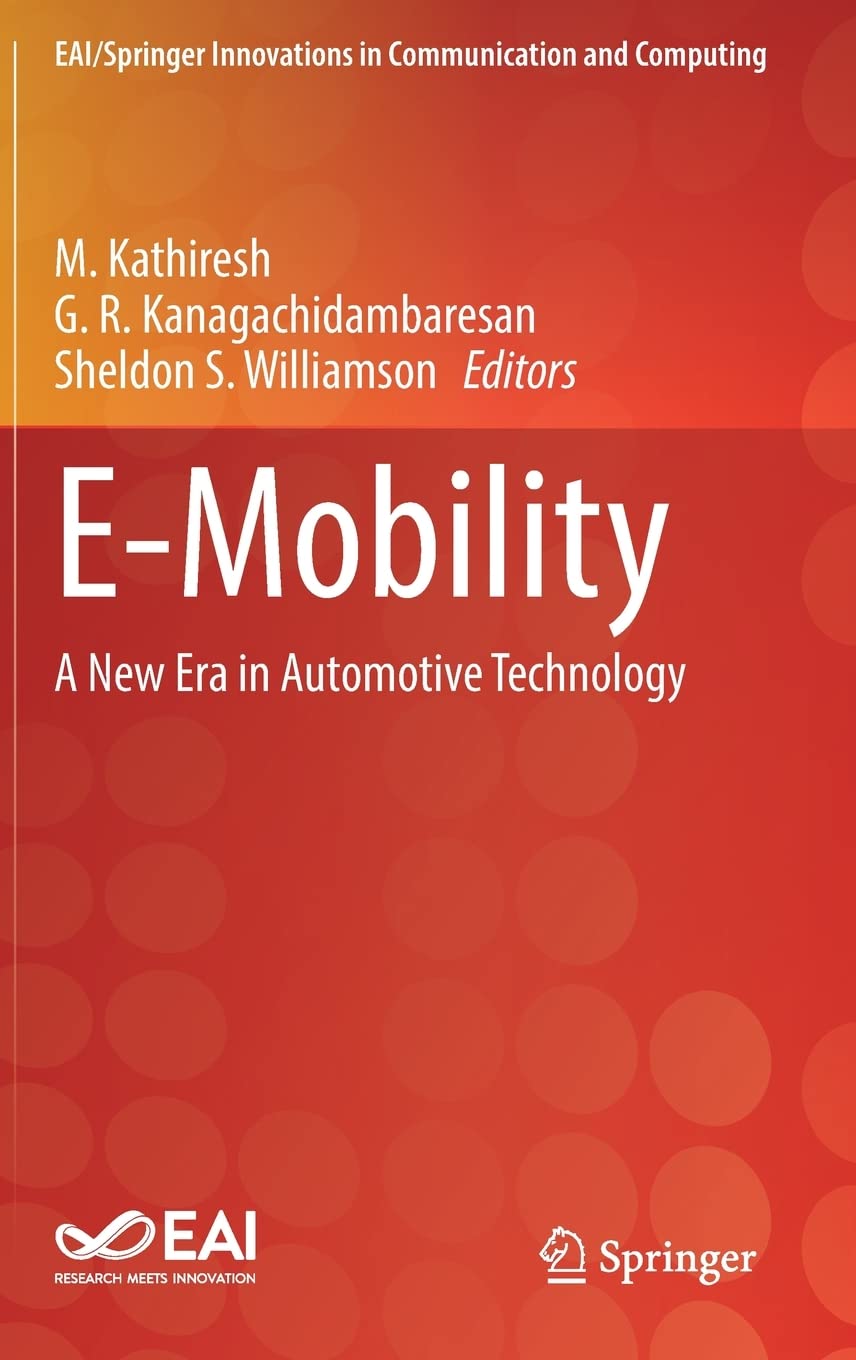Knowledge Hub

E-Mobility: A New Era in Automotive Technology
2022
Author(s): Kathiresh M, Kanagachidambaresan G R, Williamson S S
The book provides easy interpretable explanations for the key technologies involved in Electric Vehicles and Hybrid Electric Vehicles
Electric Vehicles Growth Until 2030
2022
Author(s): Nogueira T, Sousa E, Alves GR
This study indicates the EVs sales growth for the 2020–2030 decade in 3 possible evolution scenarios carried out for a given Portuguese regional area.
Developing Micromobility in Urban Areas: Network Planning Criteria for E-Scooters and Electric Micromobility Devices
2022
Author(s): Ignaccolo M, Inturri G, Cocuzza E, Giuffrida N, Pira ML, Torrisi V
The rapid spread of micromobility, characterized by the use of e-scooters and other electric micromobility devices, has brought both urban and transport planners to deal with a huge number of new vehicles of different sizes and technology with respect to those traditionally circulating in urban areas.
Digital Twin of Fuel Cell Hybrid Electric Vehicle
2022
Author(s): Bartolucci L, Cennamo E, Cordiner S, Mulone V, Pasqualini F, Boot MA
Today, the transport sector is a major source of pollutant and greenhouse gas emissions. Fuel Cell Hybrid Electric Vehicles are a solution to reduce its environmental impact, thanks to the zero pollutant tailpipe emissions and longer driving ranges if compared with full electric vehicles.
Hydrogen Mobility Europe (H2ME): Vehicle and Hydrogen Refuelling Station Deployment Results
2018
Author(s): Speers P
Hydrogen Mobility Europe (H2ME, 2015–2022) is the largest European Fuel Cells and Hydrogen Joint Undertaking (EU FCH JU)-funded hydrogen light vehicle and infrastructure demonstration.
Integrating a Hydrogen Fuel Cell Electric Vehicle with Vehicle-to-Grid Technology, Photovoltaic Power and a Residential Building
2018
Author(s): Robledo CB, Oldenbroek V, Abbruzzese F, van Wijk AJM
This paper presents the results of a demonstration project, including building-integrated photovoltaic (BIPV) solar panels, a residential building, and a hydrogen fuel cell electric vehicle (FCEV) for combined mobility and power generation, aiming to achieve a net-zero-energy residential building target.
Comparison of Hydrogen Powertrains with the Battery Powered Electric Vehicle and Investigation of Small-Scale Local Hydrogen Production Using Renewable Energy
2021
Author(s): Handwerker M, Wellnitz J, Marzbani H
Climate change is one of the major problems people face in this century, with fossil fuel combustion engines being huge contributors. The battery-powered electric vehicle is currently considered the predecessor, while hydrogen vehicles only have an insignificant market share.
Hydrogen Fuel Cell Road Vehicles and Their Infrastructure: An Option towards an Environmentally Friendly Energy Transition
2020
Author(s): Bethoux O
The latest pre-production vehicles on the market show that the major technical challenges posed by integrating a fuel cell system (FCS) within a vehicle—compactness, safety, autonomy, reliability, cold starting—have been met.
Life Cycle Assessment of Electric Vehicles and Hydrogen Fuel Cell Vehicles Using the GREET Model—A Comparative Study
2021
Author(s): Wong EYC, Ho DCK, So S, Tsang C-W, Chan EMH
With global warming and recent bans on diesel in automobiles, the need for vehicles driven by renewable energy sources to reduce greenhouse gas and pollutant emissions is growing.
What Do We Really Know About the Acceptance of Battery Electric Vehicles?
2022
Author(s): Wicki M, Brückmann G, Quoss F, Bernauer T
Battery electric vehicles (BEV) are essential in most countries’ transition towards an efficient, cleaner, and low-carbon transport system. BEV technology has been making rapid progress, but low market uptake poses major challenges for governments and industry.



